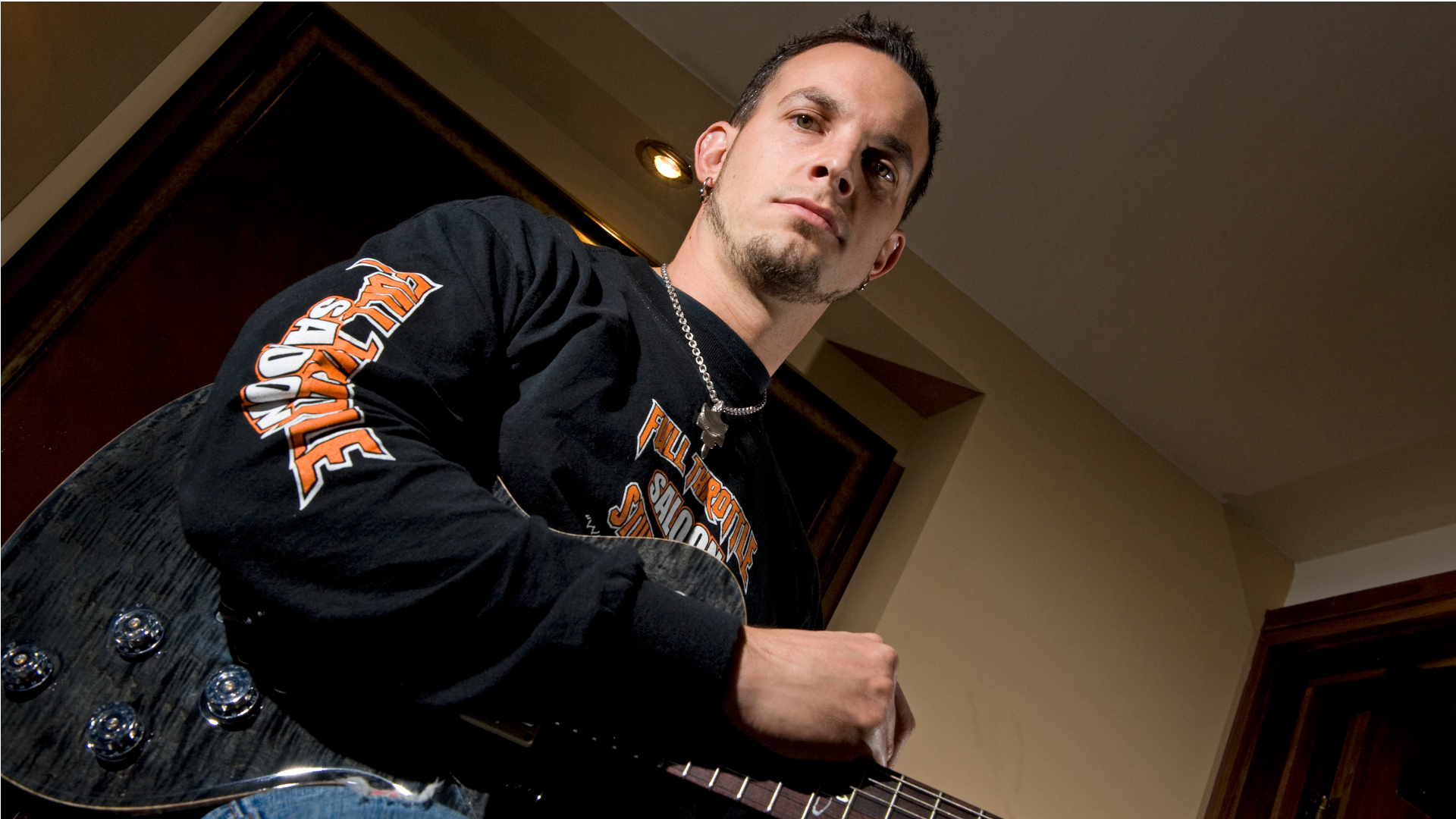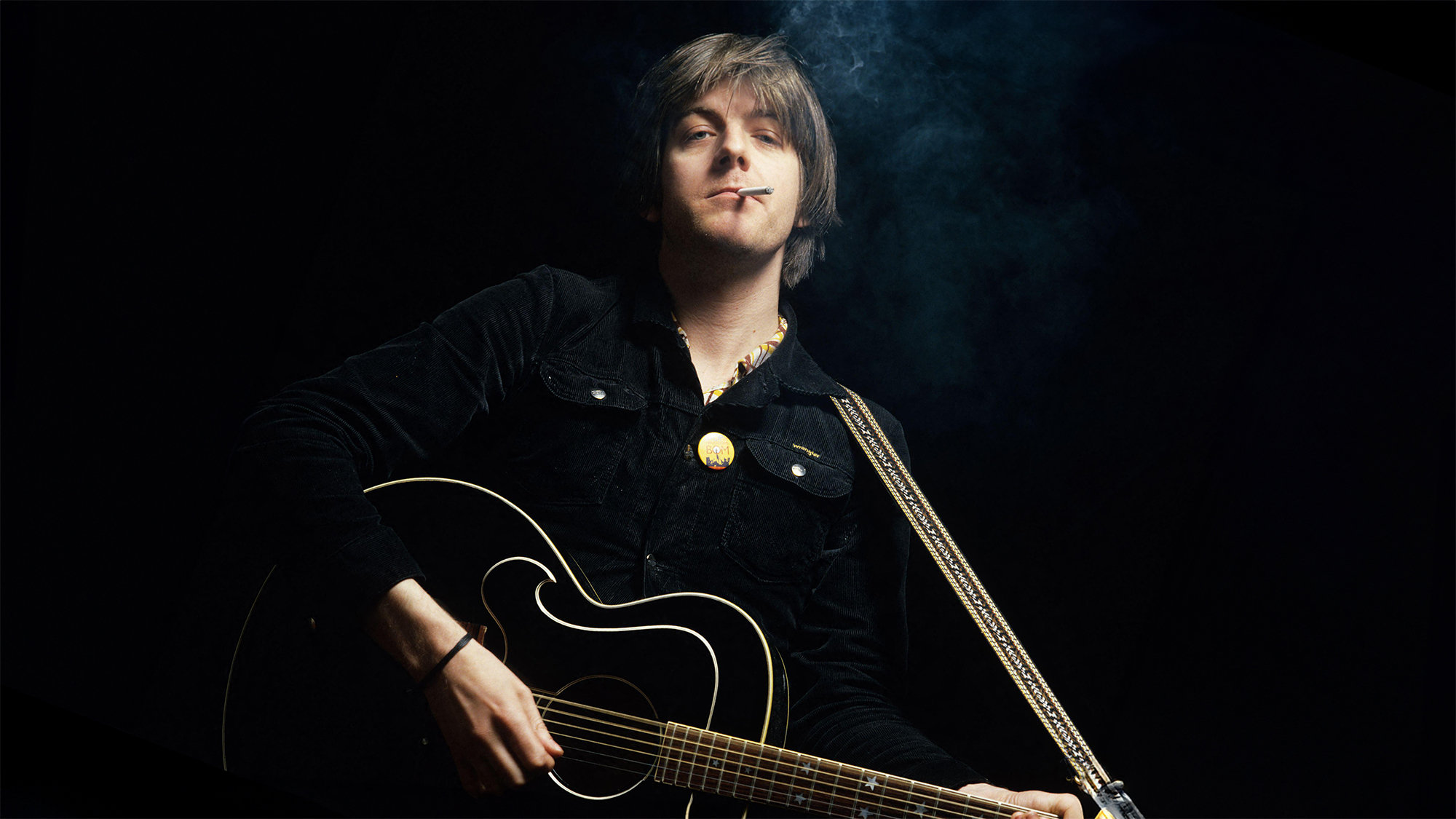“Scott was putting pressure on us to write a song in front of people. But I was ready.” Mark Tremonti reveals how Creed wrote their hit “Higher” in front of an audience
The guitarist also tells how suicide, soundchecks and airplanes played roles in his favorite Creed tracks

All the latest guitar news, interviews, lessons, reviews, deals and more, direct to your inbox!
You are now subscribed
Your newsletter sign-up was successful
With Creed in the midst of their celebratory reunion tour, Mark Tremonti couldn’t be happier to be back on the road with the post-grunge act he cofounded with singer Scott Stapp in 1994. After breaking up in 2004, the group attempted two reunions, but found that the pressures of the music business — along with Stapp’s increasingly outlandish behavior — made any long-term plans impossible.
But 12 years after Creed ended for the second time, Stapp — who is sober, energized, and unshackled from his demons — drummer Scott Phillips, bassist Brian Marshall, and Tremonti are taking on the world one concert stage at a time. And much to Tremonti's delight, the world is ready to have them.
"Seeing the reaction that we've gotten and the excitement that people have had about the tour coming out, it just rubs off on us," he says. “It makes us want to do it."
The guitarist took time off from the road to share with us the stories behind his five favorite Creed tracks.
"My Own Prison" (1997)
“‘My Own Prison’ is what started it all for us. It was the first song. We had a song called ‘Grip My Soul,’ which was a real bluesy and fun song that we used to end the set with, and people used to love it. But after we wrote ‘My Own Prison,’ for the first time people would return to our college shows and just be like, ‘Play that song again!’
“We had club owners asking, ‘What's that song? Play that.’ When we recorded it with [producer] John Kurzweg in Tallahassee, we got the song on the local rock station, and they played it late on Sunday nights. It got such a good response that they were nice enough to put it in rotation. And within no time at all, it was the most-requested song on the local rock station.
"That's when record labels started calling and being like, ‘Who the hell is this band out of Tallahassee?'"
—Mark Tremonti
“So we were like, ‘What's happened in here?’ And that's when record labels started calling and being like, ‘Who the hell is this band out of Tallahassee that's getting all this attention?’ That's when people started coming down, and we started doing showcases.
All the latest guitar news, interviews, lessons, reviews, deals and more, direct to your inbox!
“ ‘My Own Prison’ is really the song that made us what we are, because it was the song that caught on. I think if you can make a big splash in whatever city you're in and get the attention of the powers that be, sometimes that's all it takes. And for us, that's what it took.”
"What's This Life For" (1997)
“When I was growing up, my friend's older brother committed suicide, and I wrote ‘What's This Life For’ about him. I wrote most of the lyrics , and then Scott finished the lyrics for the bridge with me. He loved the song as well. It's just an emotional song about loss and how it's such a shame when you see a young person like that end their life.”
"Higher" (1999)
“I remember being at Floyd's Music Store [a Tallahassee music venue where Creed played], which was the place where we got signed to our record deal after playing a show. Scott was always putting pressure on us to try to write a song in front of people. And he always looked at me to complete something. He’d say, ‘Hey, guys, let's write something live.’
“But I was ready. I played the chorus and Scott immediately sang, ‘Can you take me higher.’ He just started singing that lyric and that melody right out of the gate. That's how ‘Higher’ was written. And it became one of our biggest songs
"“Everybody had been saying we were one-hit-wonders. We were like, ‘This is our protection against the sophomore slump.’"
—Mark Tremonti
“I think we knew we had something right away. I vividly remember being in the studio with John Kurzweg in Tallahassee, listening to some of the final mixes and thinking, This has got to be the first song we put on the next record.
“Everybody had been saying we were one-hit-wonders, and we'd have a sophomore slump, so when we heard that song, we were like, ‘This is our protection against the sophomore slump.’ We hoped for good traction, and we got it.
"I remember going into a furniture store after buying my first house and hearing 'Higher' on the radio for the first time. The DJ was very complimentary; I was like, ‘All right! Looks like I'm gonna be able to pay for this furniture!’ “
"With Arms Wide Open" (1999)
“This is another one that got its start at a show. We were at Penn State [University] doing a soundcheck before a show, and I started playing a fingerstyle pattern. Scott said, ‘Wow, what is that? That's got a cool mood to it.’ And he got on the microphone and started singing alone, and before we knew it, we had the bulk of that song completed, at least in terms of its melody.
“That sort of thing happened with us a lot, where we would write at soundcheck and pull back the doors to keep people out, because we had something exciting going on. I think that's what happened there: We got to a point where we held everybody out of the room because we were writing a song. And it was worth it. Just like 'Higher, 'With Arms Wide Open' turned out to be one our biggest songs."
"My Sacrifice" (2001)
“I was working on the music for it and came up with the melody while I was on an airplane. I remember flying and starting to come up with some of the lyrics and the melody for the chorus, and then I started playing it at soundcheck.
“At that point, we were doing arena-level shows. I remember playing the opening for 'My Sarifice' in an arena and hearing it through the PA. I just thought, Wow, this just feels great! It sounded amazing in that atmosphere, and we put it together from there. By then we were always on the road and touring, so playing and writing new sounds at soundcheck was common. It became one of my favorite Creed songs. I still love it a lot, especially the opening chords.
“The song is in open D, which is one of my favorite tunings. I love it because there's a lot of chord voicings that you wouldn't necessarily be able to get in standard or any other tunings. It's things like that, like a beautiful tuning; it lends itself to a big, open sound. That song is the epitome of why I love that tuning.”
Andrew Daly is an iced-coffee-addicted, oddball Telecaster-playing, alfredo pasta-loving journalist from Long Island, NY, who, in addition to being a contributing writer for Guitar World, scribes for Rock Candy, Bass Player, Total Guitar, and Classic Rock History. Andrew has interviewed favorites like Ace Frehley, Johnny Marr, Vito Bratta, Bruce Kulick, Joe Perry, Brad Whitford, Rich Robinson, and Paul Stanley, while his all-time favorite (rhythm player), Keith Richards, continues to elude him.





